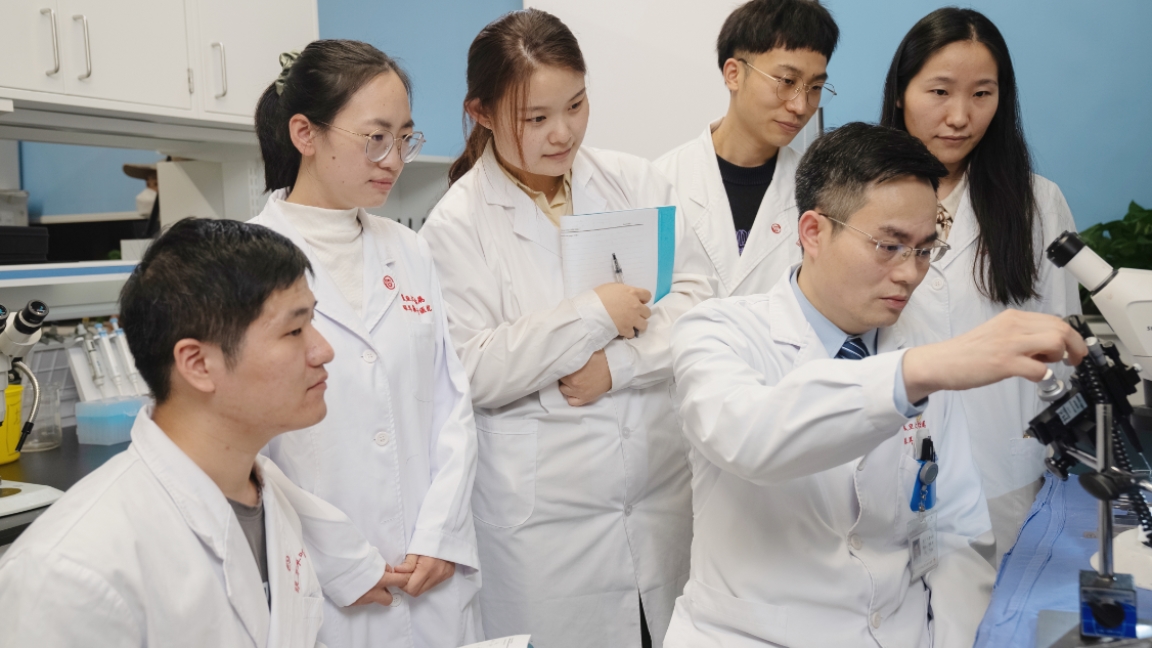
Local medical experts, teaming up with scientists in South Korea, announced that they have developed a gene therapy to treat hearing loss due to a mutation prevalent in East Asia. The therapy was effective in animal models.
In order to look for precise treatment therapy for genetic hearing loss, a team, led by Dr Shu Yilai from the Eye, Ear, Nose and Throat Hospital of Fudan University, cooperated with experts from Seoul National University Hospital to carry out clinical cohort study on 1,437 deaf families and targeted the MPZL2 mutation, the second leading mutation causing hearing loss.
They found the same mutations on the MPZL2 gene among many research objects, indicating founder effect. This implied that people in East Asia have a higher genetic risk of such mutation.
Bearing in mind the mutation position, they developed a mouse model imitating deaf patients with the same mutation. Introducing a gene-editing and delivery therapy, they were able to help the mouse regain hearing.
Shu said the success of the technology provides new hope for people with genetic hearing loss.
This research was published by the world-leading journal Nature Communications.
![[China Tech] Local experts introduce gene-editing therapy for deafness; research clinic opens](https://obj.shine.cn/files/2025/08/12/a666debf-fa93-4c63-9324-5e2aaf7cb665_0.png)
This research was published by world-leading journal Nature Communications.
There are about 430 million people with hearing disability in the world, including 26 million people with congenital deafness. About 30,000 children are born deaf in China each year, with 60 percent of the cases related to genetic defects, seriously impacting their language, cognition and intelligence development. There are more than 200 known genes related to deafness, but no effective medication so far.
Gene therapy is believed to be a very promising treatment for people with nerve deafness.
Shu has been honored with the Award for Clinical Innovation by the Association for Research in Otolaryngology for his achievements in gene therapy for the deaf.
It is the first time the United States-based association has given the award to an expert from Asia.
Shu's team successfully developed a genetic medicine targeting deafness due to the OTOF genetic mutation with a precise and minimally invasive drug delivery route and equipment. It is the world's first successful gene therapy for hereditary deafness.
![[China Tech] Local experts introduce gene-editing therapy for deafness; research clinic opens](https://obj.shine.cn/files/2025/08/12/d8a1376a-d125-4eba-a6b9-7d97ad527930_0.png)
Dr Shu Yilai checks a child with congenital deafness.
New research clinic for deafness
To meet deaf patients' demand for treatment, clinical trial and consultation, the Eye, Ear, Nose and Throat Hospital of Fudan University this month launched a new research clinic focusing on precise diagnosis and treatment and advanced new therapy for people with sensorineural hearing loss.
It offers analysis of genetic reports on congenital deafness, gene therapy, guidance on artificial cochlea, innovative medication on age-related deafness and other complicated problems.
The clinic is led by top experts from the hospital, including Shu. Each patient will receive a detailed and individualized analysis and clinical support. Doctors can offer bilingual services.
If you go
复旦大学附属眼耳鼻喉科医院
Fenyang branch 汾阳院区
Opening hours: Tuesday morning and Wednesday afternoon
Address: 83 Fenyang Rd 汾阳路83号
Pujiang branch 浦江院区
Opening hours: Thursday morning
Address: 2600 Jiangyue Rd 江月路2600号
Contact: Expatriate patients can contact the clinic through e-mail: ear@fdeent.org

